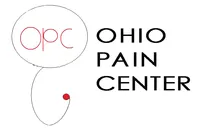 When pain persists after Level 1 and 2 therapies have been tried, your pain specialist may recommend more complex treatment options. Relieving stubborn, chronic pain may take time and patience, and your pain specialist may need to try multiple treatments to find the most effective solution for your unique pain condition.
When pain persists after Level 1 and 2 therapies have been tried, your pain specialist may recommend more complex treatment options. Relieving stubborn, chronic pain may take time and patience, and your pain specialist may need to try multiple treatments to find the most effective solution for your unique pain condition.
Spinal Cord Stimulation
Spinal Cord Stimulation (SCS) uses electrical signals to mask the perception of pain traveling from the painful area to the brain. In place of pain, patients feel a mild tingling sensation called paresthesia. SCS can provide long-lasting pain relief and can be used in conjunction with other therapies. Patients are able to control the intensity of the therapy, as well as turn it on and off using a remote control.
Surgery
Surgical procedures for pain can range from minor outpatient procedures to more invasive brain and spinal procedures. Surgery may be required when pain is caused by an injury, structural problems or disease. It may also be prescribed in conjunction with other treatments.
Implantable Drug Pumps
Drug pumps, also known as intrathecal drug pumps, deliver pain medication directly to the cerebrospinal fluid in the space surrounding the spinal cord. Direct application reduces the amount of opioids needed to relieve painful symptoms. Pain pumps are often used to treat cancer pain and other conditions that involve both nociceptive and neuropathic pain.
Neuroablation
Neuroablation is a surgical technique that destroys nerves and tissue, permanently blocking nerve signals to the brain. There are several types of neuroblation: Cordotomy involves cutting a tract of the spinal cord. Rhizotomy destroys a nerve next to the spinal cord. Thalamotomy and Pallidotomy use radio-frequency energy to destroy brain cells. Neuroablation is typically used as a last resort when other therapies fail to significantly relieve pain. There is a risk of numbness or loss of muscle control with these procedures. The nerves may also regenerate and pain may develop in a different nerve pathway.
Disclaimer:
The information on this website is provided for educational and information purposes only and is not medical advice. Always consult with a licensed medical provider and follow their recommendations regardless of what you read on this website. If you think you are having a medical emergency, dial 911 or go to the nearest emergency room. Links to other third-party websites are provided for your convenience only. If you decide to access any of the third-party websites, you do so entirely at your own risk and subject to the terms of use for those websites. Neither Ohio Pain Center, nor any contributor to this website, makes any representation, express or implied, regarding the information provided on this website or any information you may access on a third-party website using a link. Use of this website does not establish a doctor-patient relationship. If you would like to request an appointment with a health care provider, please call our office at (419)517-1351.
